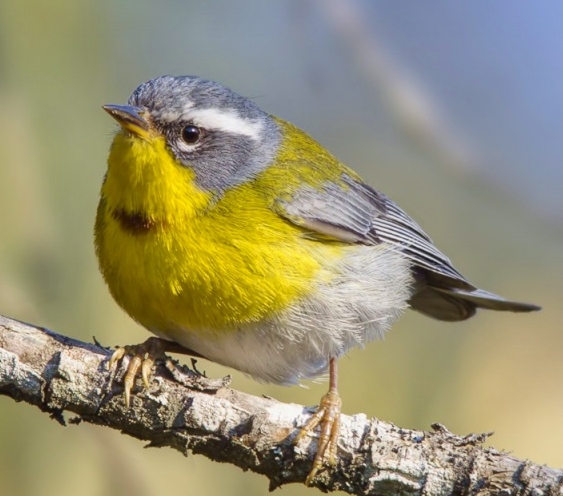 |
| Photo by Raul Padilla (Bird Forum) |
Common name:
crescent-chested warbler (en); mariquita-de-peito-manchado (pt); paruline à croissant (fr); chipe pechimanchado (es); schmuckwaldsänger (de)
Taxonomy:
Order Passeriformes
Family Parulidae
Range:
This species is found in Central America, from northern Mexico to Nicaragua.
Size:
These birds are 10,5-12 cm long and weigh 8-10 g.
Habitat:
The crescent-chested warbler occupies humid to semi-humid pine-oak forest, oak, and oak-evergreen forests, at altitudes of 900-3.500 m.
Diet:
They mainly feed on insects, but will also take fruits and berries.
Breeding:
Crescent-chested warblers are monogamous and breed in April-July. The nest is a cup made of green moss and lined fine plant fibers, grass stems, and hair, which is placed on top of a grassy tussock or on a bank near the ground. There the female lays 2-3 white eggs, which she incubates alone for 12-14 days. The chicks are fed by both sexes and fledge 8-10 days after hatching. Each pair raises 1-2 broods per year.
Conservation:
IUCN status – LC (Least Concern)
This species has a large breeding range and a global population estimated at 50.000-500.000 individuals. The population is suspected to be in decline owing to ongoing habitat destruction.







